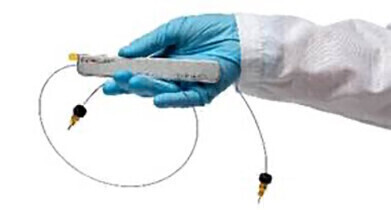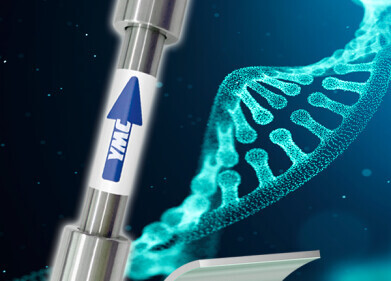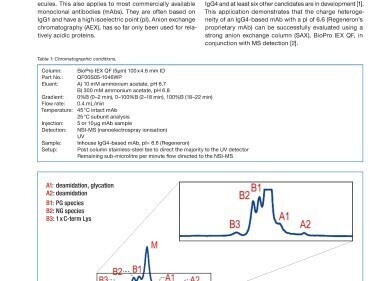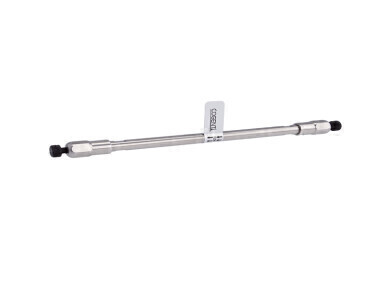Columns
Low-Flow HPLC Columns for Proteomics
Mar 08 2023
Enhanced separation performance and stability for samples with biological complexity
With its distinct micro-pillar separation design, the Thermo Scientific µPAC Neo HPLC Columns offer researchers the ability to delve deeper into proteomics samples. These columns allow for precise identification of peptides, determination of protein quantities, and discovery of disease biomarkers and post-translational modifications.
The latest inclusion in the product line is the low-load trapping column of µPAC Neo, designed to cater to the tiniest sample sizes in single-cell proteomics separations. This column comes equipped with built-in nanoViper connections to the Vanquish Neo UHPLC systems, which offers seamless usability and mitigates the risk of errors. All users of µPAC Neo columns can experience the advantages of consistent column reproducibility, leading to more dependable data analysis and result reliability.
The complete range of µPAC Neo columns presents a variety of options to cater to different proteomics research requirements. These include a 50 cm µPAC Neo column that is well-suited for routine proteomics, a 110 cm µPAC Neo column designed for comprehensive proteomics investigations, and a 50 cm µPAC Neo low-load column that is specifically tailored for single-cell proteomics. In addition, the µPAC Neo low-load trapping column provides support for single-cell proteomics separations, complete with built-in nanoViper connections to Vanquish Neo UHPLC systems for greater ease of use and reduced risk of errors. With this diverse range of options, researchers can choose the most appropriate column for their specific proteomics analysis needs.
The manufacturing process of µPAC Neo columns involves micromachined etching of silicon wafers, leading to the creation of precise and uniform separation paths. This results in an exceptional level of consistency between columns and prolonged column lifetimes, which is particularly beneficial for proteomics research. These columns offer greater column-to-column reproducibility compared to packed-bed columns, making it easier for researchers to develop and validate methods and analyse larger sample batches with more confidence.
More information online
Digital Edition
ILM 49.5 July
July 2024
Chromatography Articles - Understanding PFAS: Analysis and Implications Mass Spectrometry & Spectroscopy Articles - MS detection of Alzheimer’s blood-based biomarkers LIMS - Essent...
View all digital editions
Events
Jul 28 2024 San Diego, CA USA
Jul 30 2024 Jakarta, Indonesia
Jul 31 2024 Chengdu, China
ACS National Meeting - Fall 2024
Aug 18 2024 Denver, CO, USA
Aug 25 2024 Copenhagen, Denmark





24_06.jpg)













